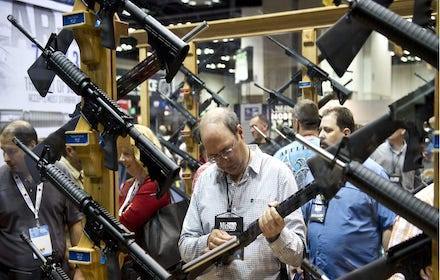www.aljazeerah.info
Opinion Editorials, June 2019
Archives
Mission & Name
Conflict Terminology
Editorials
Gaza Holocaust
Gulf War
Isdood
Islam
News
News Photos
Opinion Editorials
US Foreign Policy (Dr. El-Najjar's Articles)
www.aljazeerah.info
On the Alleged 'Preciousness of Life' By Lawrence Davidson Redress, June 24, 2019 |
 |
 |
|
How precious can human life really be?
There is a popular myth that all life is precious, particularly, of course, human life. The idea is popular enough to warrant college-level essays for sale on this topic. More seriously, the notion is promoted by Christians regardless of denomination, most loudly by those who concern themselves with the life of the unborn. Alas, such Christians often have very little to say about the quality of life of the born. The preciousness of life is also promoted by those who are Jewish, even as their Zionist brethren rob and kill Palestinians. Muslims, who are called upon by their God and Prophet to value all life, often hate each other (Sunni versus Shia) to the point of war. And this is just the hypocrisy of the religious. With the exception of some quite remarkable social-democratic states, the behaviour of the secular governments can be just as bad if not worse.ß
Clearly, the assertion that life is precious is one of those idealised maxims that everyone is expected to agree with. However, in practice, it is just as obvious that the notion is largely ignored. In truth, life, including human life, is very often treated with callous disregard.
In the United States, if one only stops to think about it, this contradiction is glaring. For instance, is human life’s alleged precious worth even relevant to the behaviour of the “Defence” Department, which until 18 September 1947, was more accurately named the War Department? American military operations in countries such as Afghanistan, Pakistan, and Iraq – almost always sanctioned by sanctimonious leaders citing first-hand knowledge of God’s will – have killed hundreds of thousands of civilians in the post-9/11period, and of course, that is on top of previous episodes of 20th Century mass slaughter in South-East Asia and Central America. The assumption that all this bloodletting was and is carried on in defence of the USA is so far-fetched as to be beyond credence. Today the United States aids in the killing of civilians in Syria, Yemen, Somalia and Palestine. Based on practice, Washington’s denial of life’s preciousness seems without end.
I was about to add that this disregard for human life is expressed most readily when the victims are innocents of other nationalities. However, upon consideration, this simply is not the case. The US has laws and a powerful lobby that insist on the American citizen’s right to possess the means to slaughter its own innocent population. The lobby we are speaking of here is the National Rifle Association (NRA).
The NRA has a slogan that is repeated by its members over and over again: “Guns don’t kill people, people kill people.” In other words, the guns that are used in the continuing slaughter of innocents in the US are somehow irrelevant to the slaughter itself. However, this is nonsense, and the slogan is simply inaccurate and therefore misleading. At least in the United States, those who kill people, particularly more than one at the same time, almost always do so with weapons such as assault rifles. Such weapons are not really meant for the killing of rabbits, deer, the occasional bear or even the groundhog under your porch. They certainly are not designed for taking pot shots at clay pigeons. The real reason they were developed, originally for the military, was to maim or kill human beings. This is something they do quite well.
There are now an estimated five to 10 million assault-style weapons in circulation in the US. And yes, the vast majority of these weapons are held legally – so dysfunctional is the law in this regard. However, their legal status makes no difference. To date, the U. is averaging at least one mass killing every 200 days. To this we can add the estimated 393 million handguns in circulation in the US. These are involved in tens of thousands of violent acts per year. All of this makes a mockery of the notion that life is precious.
Warehousing the living
Inevitably, all this slaughter, at home and abroad, must have an impact on how those who remain alive both act and are treated. You can see this negative carryover – the devaluing of the living in various forms of societal warehousing. By this I mean the involuntary, and in some cases voluntary, confinement. Most societies are quite capable of deeming whole categories of people as candidates for such warehousing.
One obvious category is people, both male and female, convicted of crimes. In the United States there are around three million people in prison. The proposition that these people “deserve” their warehousing sentence is rarely doubted by the general population, and what that sentence does to the value of the prisoner’s life is rarely questioned. Prison not only seriously restrains one in movement, but also severely limits one’s choices. Productivity, ambition, talent, instead of being encouraged to grow in positive directions, often must be directed towards stark survival. The prisoner’s world shrinks drastically not only in space, but also in time by virtue of the fact that you are bound to a preset, often deadening routine.
Prisons are obviously warehousing operations where life’s worth is devalued. But what of the so-called K-12 [kindergarten to 12th grade] schooling institutions? In many ways they resemble prisons – the students’ space and time are controlled. Choice is minimal and skills are only to be developed in a manner compatible with cultural norms. One might argue that this is quite normal, for the purpose of such schooling is, at best, to shape the students into good, culturally assimilate citizens – or, more exploitively to make them useful to the economy. If this is warehousing, it is a necessary sort. Perhaps this is the case, but then the preciousness of the students’ lives must be defined by particularistic social standards and not any universal ideal.
And finally we come to those who have been severely impaired by old age. Growing older can obviously reduce life’s perceived worth within a society that worships youth, and this is often the case in the United States. However, there is also a way in which aging eventually forces one to abandon normal activities, because of physical and/or mental impairment. This natural process robs one of independence and by doing so devalues human life, at least within a modern Western context.
In our day many people who can afford to do so arrange for aged relatives to live and be cared for in special places referred to as “old age homes” or “senior living facilities”. They do not necessarily do this because they find the lives of their relatives precious – though in some cases they might. Rather they often do so for the very practical reason that they cannot manage caring for their elderly relatives at home. The staff of these institutions are usually well-intentioned and try hard to provide positive environments. Nonetheless, they are dealing with a population with steadily decreasing abilities – to the point that it is impossible not to think of these places as warehouses for the old and impaired.
Conclusion
Life should be precious, but, considered objectively, it is not. Nor has it ever been. Certainly there is no precedent in the natural world of animals for such a belief, except perhaps, short periods of maternal bonding. Human beings have long insisted that they are qualitatively different and “higher” than “mere” animals, and perhaps the notion of the preciousness of human life was invented to support this claim. However, human behaviour as described above belies this belief.
And here is one final thing to consider. Not only is life’s preciousness, or if you will, life with dignity, a problematic thing, but in the US so is death with dignity. Physician-assisted suicide is illegal in 41 of the 50 states, and not because your terminally ill status is so precious that it is worth sustaining. Rather, it is often illegal because the state is suspicious that your relatives will encourage your early demise so as to inherit your estate.
What we are left with is the old adage, life is what you manage to make of it. To this we might add, if you’re lucky, you will not start life poor, and will manage to end it with dignity before you lose your mind and your independence. In this perpetual uphill struggle to find and maintain some precious quality to our lives, some of us are fortunate enough to have friends and family who impart feelings that we are wanted and appreciated. Others, however, never find these feelings in any sustaining sort of way. As for American society in general, it seems to offer less and less as time goes on, except an increasing probability of being shot.
https://www.redressonline.com/2019/06/on-the-alleged-preciousness-of-life/
***
Share the link of this article with your facebook friends
|
|
|
|
||
|
||||||


